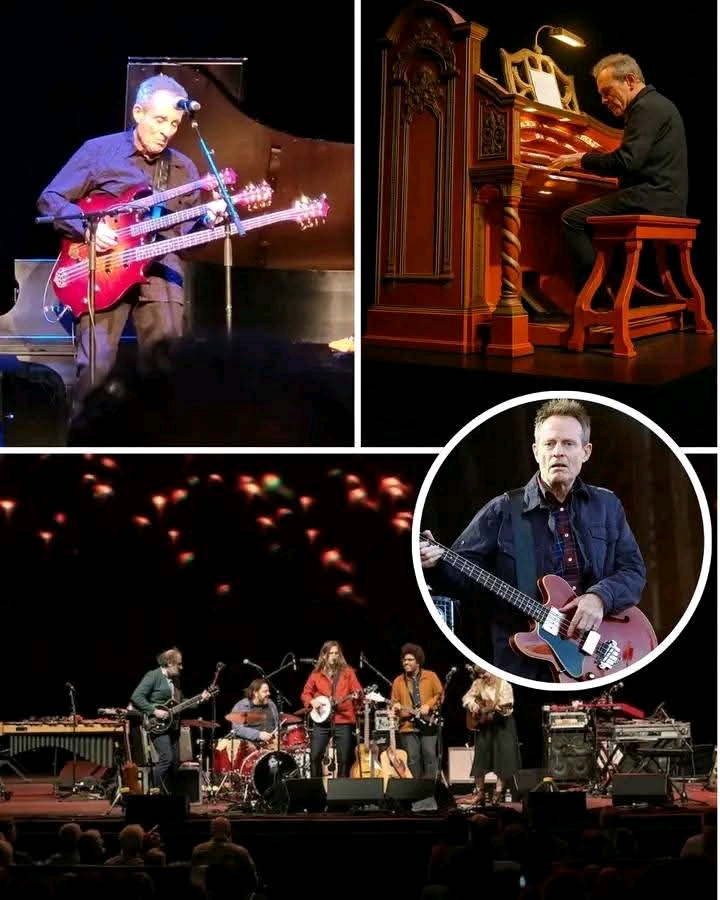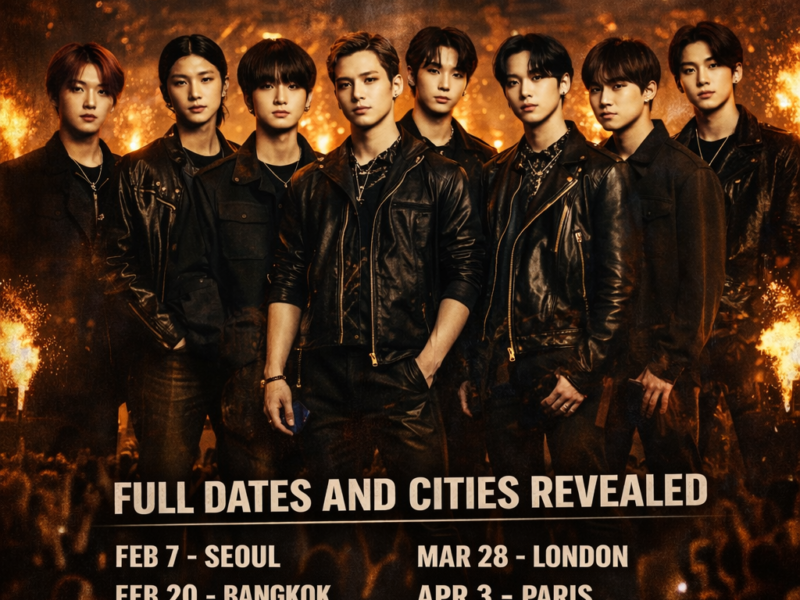At the recent Big Ears Festival in Knoxville, music enthusiasts were treated to a transcendent experience as legendary bassist John Paul Jones reignited the spirit of Led Zeppelin, transforming the stage into a sacred space where history and innovation collided. The atmosphere was electric, charged with anticipation for a performance that promised to be a homage but ended up being so much more—a rebirth of rock’s most iconic sounds through the masterful touch of a musician whose influence has persisted for decades.
From the moment Jones stepped onto the stage, it was clear this was no ordinary set. Clad in his signature understated style, he carried an aura of calm confidence, yet the energy radiating from him was palpable. As the lights dimmed and the opening notes floated through the auditorium, the audience was transported back to the golden age of rock, only to realize they were witnessing something uniquely fresh and compelling. Jones didn’t merely revisit Zeppelin; he reimagined it, infusing each song with a new depth that resonated deeply with both longtime fans and newcomers alike.
One of the most mesmerizing aspects of the performance was Jones’s extraordinary versatility on stage. Throughout the set, he seamlessly transitioned between a variety of instruments—each change eliciting audible gasps of admiration from the crowd. At one moment, he was at the pipe organ, channeling a majestic, almost mystical aura that added a haunting dimension to classics like “No Quarter.” The deep, resonant tones of the organ filled the venue, creating an immersive atmosphere that felt like a séance of rock history—an invocation of the spirits of Zeppelin’s past, brought vividly to life. Then, with a flick of his wrist, Jones was on the mandolin, coaxing delicate, shimmering melodies that offered a new perspective on familiar tunes.
The performance’s emotional core was anchored by a carefully curated selection of Zeppelin classics, delivered with a fresh intensity that stunned the audience. “Your Time Is Gonna Come” opened with a soulful, almost hypnotic groove, with Jones’s bass lines underpinning the song’s tension and release. His rendition of “No Quarter” was a masterclass in atmosphere and dynamics—the swirling layers of keyboard and guitar creating a mesmerizing, almost psychedelic soundscape that seemed to transport listeners to a different realm. “Going to California,” often celebrated for its lyrical storytelling, was reimagined with a delicate tenderness, highlighting Jones’s ability to emphasize emotion through subtle nuances and musical shading.
Throughout the set, Jones’s musicianship was nothing short of breathtaking. His command over multiple instruments showcased not just technical prowess but a deep understanding of musical storytelling. Whether plucking at the lap steel guitar or delicately playing the piano, every transition was met with reverence and precision, yet infused with a sense of spontaneity that made each moment feel alive and unrepeatable. His playing was a testament to decades of experience, yet it radiated a youthful fire—a reminder that his creative spirit remains as vibrant as ever.
The audience’s response was a mixture of awe and reverence. Fans were visibly moved, many with tears in their eyes, as they witnessed a living legend breathing new life into songs that defined an era. The atmosphere was tinged with a sense of reverence, but also excitement—an acknowledgment that this was more than a nostalgic trip; it was a reinvention, a testament to the enduring power of Jones’s artistry. The sound was rich, layered, and impeccably balanced, with each instrument’s voice clear and compelling, creating a sonic tapestry that enveloped everyone present.
What set this performance apart was not just the technical mastery or the selection of songs, but the palpable sense of artistry and authenticity that Jones brought to the stage. He didn’t simply replicate Zeppelin’s hits; he reinterpreted them, allowing each song to breathe anew. The performance was a masterclass in how a legendary artist can honor the past while pushing creative boundaries, reminding us that true artistry is timeless and adaptable.
As the set drew to a close, the crowd erupted into thunderous applause, recognizing that they had witnessed something extraordinary—a moment where music history was not just remembered, but revitalized. Jones’s performance at Big Ears was more than a set; it was a statement that the spirit of Led Zeppelin remains alive and vibrant, carried forward by one of its most pivotal members. It was a celebration of musical innovation, a testament to enduring talent, and an inspiring reminder that true artistry continues to burn bright, lighting the way for future generations.
In the end, John Paul Jones’s performance was a reminder of why he’s considered one of the greatest musicians of his era. With each note, each transition, and each reimagining, he demonstrated that the fire of creativity and passion never fades—it only burns brighter, illuminating the path for all who follow. The Big Ears Festival will be remembered not just for this performance, but for its affirmation that the spirit of Led Zeppelin, and the legacy of John Paul Jones, are as alive today as they were decades ago—powerful, enduring, and forever inspiring.


